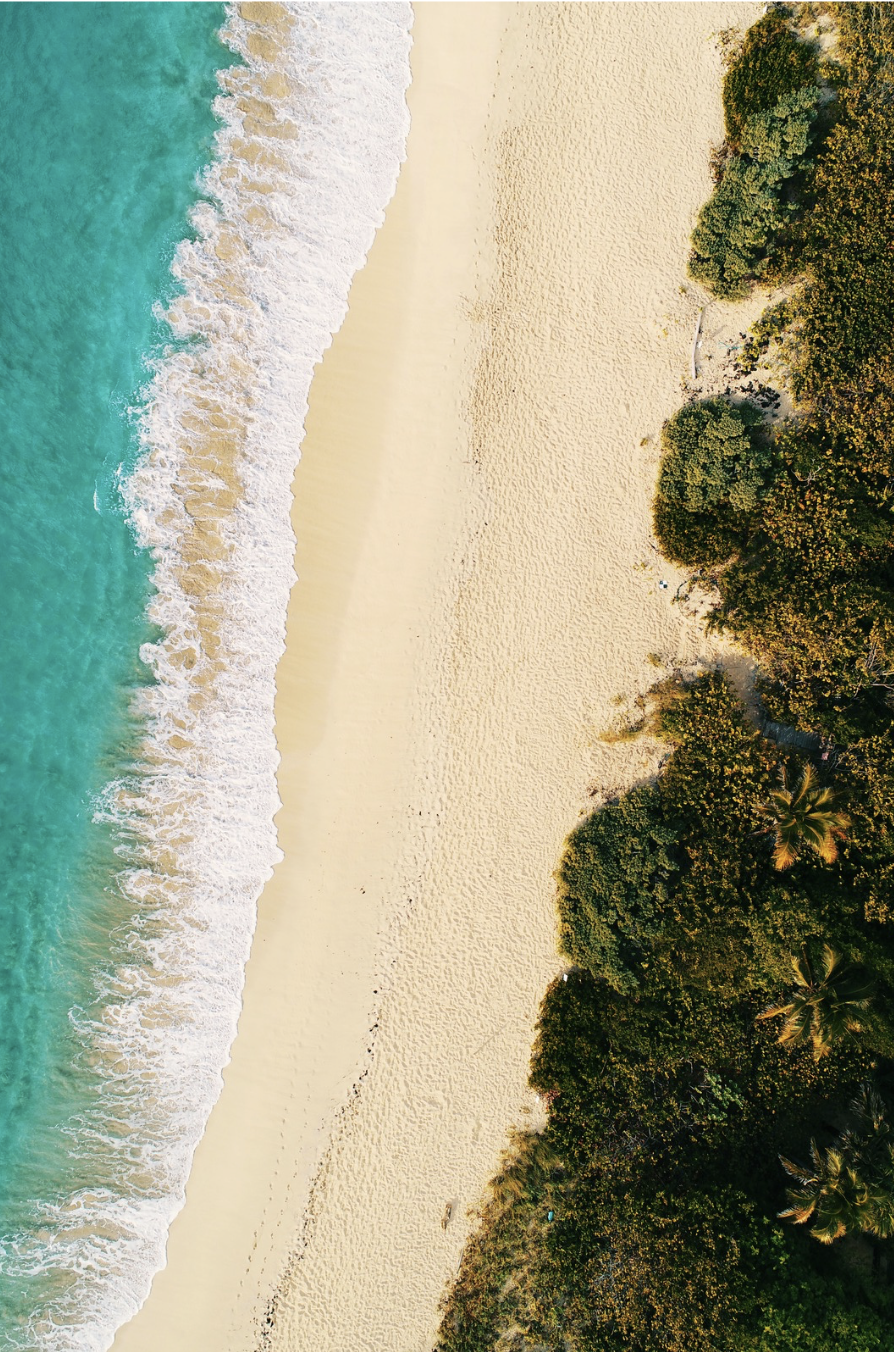Saint-Barthélemy's beaches are one of the island's natural environments. Although most of them are very popular, they remain a fragile ecosystem. The island's native flora and fauna must be preserved. Simple gestures are all it takes to ensure that our beaches continue to host sea turtles hatchlings, as well as other species that are part of the island's natural heritage.
Beaches and their regulations are available on the interactive map of the island, taken from the Collectivité de Saint Barthélemy application.
Dogs are banned from all beaches on the island of Saint-Barthélemy (municipal by-law no. 86-27 of 19-03-86).
Why this ban? On the one hand, to protect the fauna that comes here daily (birds) or episodically (sea turtles). This area is a source of food and egg-laying for them. Curious dogs can disturb them, attack them or damage their nests.
Secondly, to protect users from the risk of sand pollution by parasites (dog worms*) or the impact of dog excrement and urine on the environment.
Information about the ban on dogs on the beach - even on a leash - is posted at the entrance to each beach. Breaking this ban is an offence and exposes you to a fine.
*Dog worm: a parasite contained in excrement and which develops in the sand, can infiltrate the skin and dig grooves between the epidermis and dermis.
Essential for maintaining dunes and nourishing beaches through their root systems, coastal vegetation is threatened by overuse and intensive trampling.
When you are on the beach, try to avoid stepping on them and make sure your towels and belongings are not placed on top of them. They also play an important ecological role as nesting sites for sea turtles every year.
Going to the beach can be a source of pollution, depending on how you use it. From smokers who do not care about the future of their cigarette butts, to tanning maniacs with their sun oil, always looking for more color.
Ashtrays are available at the beach entrances under the information boards.
Cigarette butts are thought to be the biggest source of marine pollution (ahead of plastic bags and straws). One cigarette butt pollutes up to 500 liters of water and takes 12 years to decompose. Think before you throw it on land!
The impact of sunscreen on marine ecosystems, particularly coral, has been well documented. To make the most of the beach and water sports, remember to use lycra to protect yourself from the sun's rays. For tanning enthusiasts, choose creams that respect the seabed.
After just 20 minutes in the water, 25% of the cream you put on your body will have evaporated.
Picnics are fancy, but not plastic! Make sure you don't forget anything and pick up your rubbish when you leave.
As an added bonus for the environment :pick up any rubbish washed up by the waves and dispose of it in the tide bins provided.
Who isn't tempted to pick up a shell as a souvenir or a pebble for a future decoration?
Be careful, there are regulations in place to protect the coastal ecosystem. Collecting sand, pebbles, coral skeletons or even empty shells is considered an infringement of the public maritime domain. The extraction of materials is prohibited unless expressly authorized by the Executive Council.
Pebbles and coral debris protect the fauna and flora of the backshore from swell and erosion. The collection, possession, display and sale of live or dead coral are strictly regulated. For some species, a CITES certificate must accompany any item purchased in a store.
Creating piles of pebbles or coral on the beach is not without danger for the coastal ecosystem. In particular, they can form an obstacle, preventing sea turtles from accessing their nesting area, or destabilizing the ecosystem.
Shellfish - with the exception of burgo and lambi, whose fishing is subject to strict regulations - whether live or dead, are protected and must not be collected. They contribute to the life of the coastline, helping to replenish the sand on the beach as they decompose, or serving as refuges for certain crustaceans.
Since September 2023, campfires and open fires are prohibited in the public areas of the Collectivité. This means that barbecues or stoves with flames or charcoal are forbidden on the beaches of Saint-Barthélemy. For private events, permits may be issued by name. Contact the local authority: (0590 29 80 40)
3 species of sea turtle come to lay their eggs on the beaches of Saint Barthelemy: the hawksbill, green and leatherback turtles. To ensure their reproduct, it is important for these species to find a favorable environment during the egg-laying period - a very energetic time for them.
It is strictly forbidden to touch a sea turtle, on the beach or in the water.
Light and noise should be kept to a strict minimum and not directed at turtles. Red light is preferable to avoid dazzling them.
Litter and dogs are also among the threats they may encounter on the coast.
